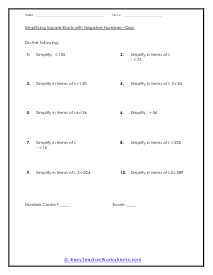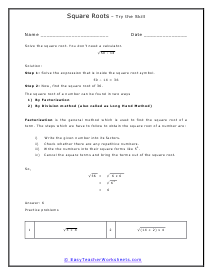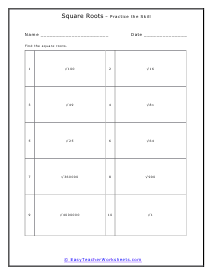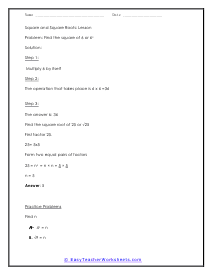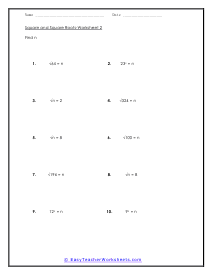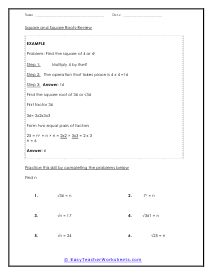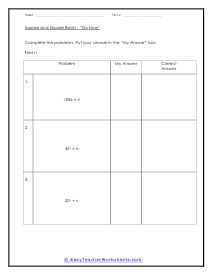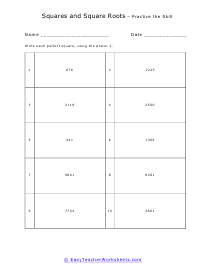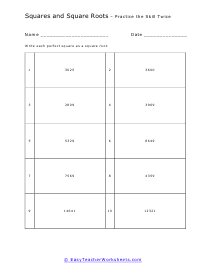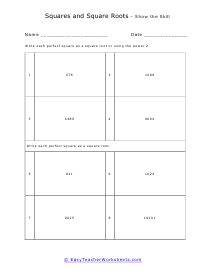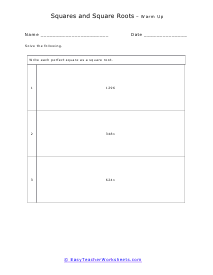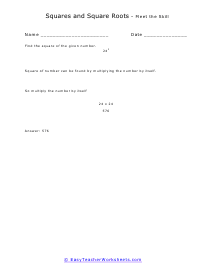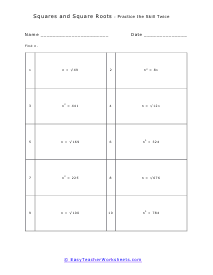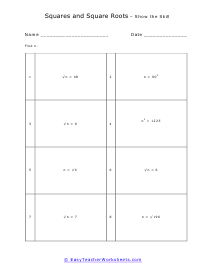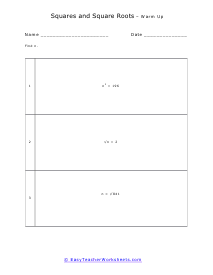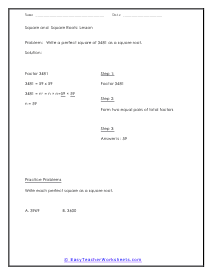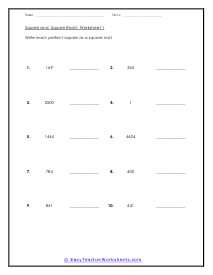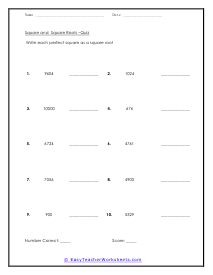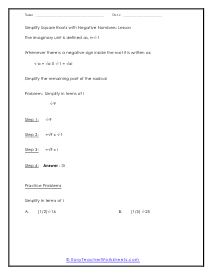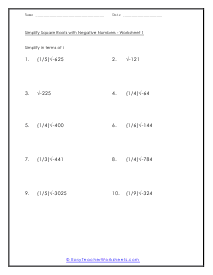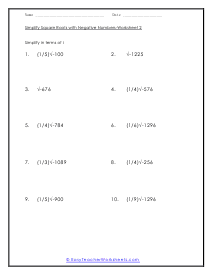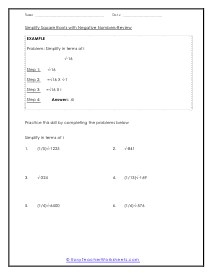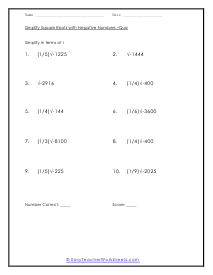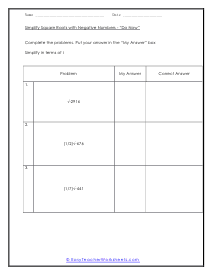Determining the square of a value and finding the square root of that value are completely opposite tasks. When we square a value, we are multiplying that value by the value itself. If you are looking to determine the square root of a value, you are trying to find what quantity multiplied by itself would produce your original value. In this section you will work with some perfect squares. Perfect squares are squares of whole numbers (i.e. 49 is a perfect square (of 7). This section includes work that will practice simplifying algebraic equations that contain negative numbers under the radical by using the algebraic symbol i (for "imaginary," the square root of -1). These don't differ much from radical equations. The only difference is how you go about calculating the final values.
We will start with lesson that walk you through all the considerations that you need to make as you go through the problems. We will then slowly pace you into doing the problems by yourself. Make sure to assess how you do with each skill as you move along by using the quizzes. Here are several worksheets covering various topics about square roots. Learn how to find the value of a square root, evaluate perfect squares, and deal with squares of imaginary numbers.
























